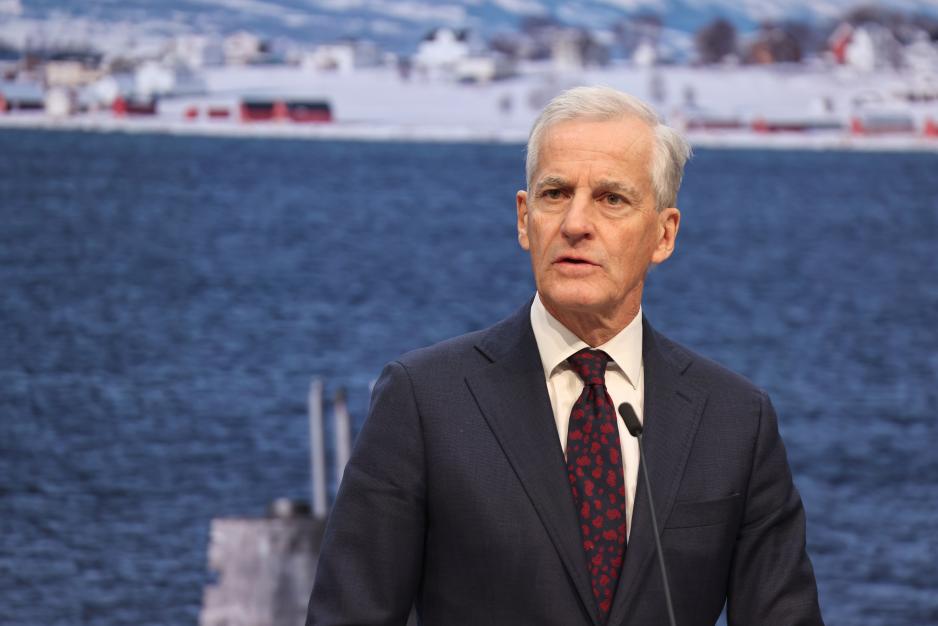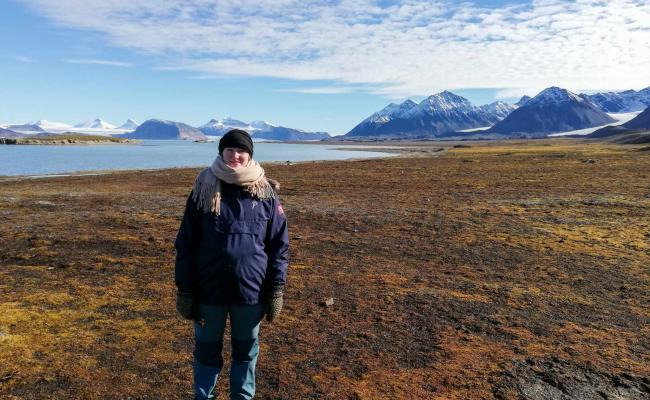Norway Wants Greater State Ownership of the Energy Supply on Svalbard

Norwegian PM Jonas Gahr Støre (Labor) gives increased electricity support to the residents in Longyearbyen. (Archive photo: Torbjørn Kjosvold / the Norwegian Armed Forces)
Norwegian PM Jonas Gahr Støre (Labor) revealed that the government suggests NOK 125 million in financial electricity support to Longyearbyen in a revised state budget. Støre also reports that the state will claim greater ownership of the energy supply on Svalbard. "We want Norwegian ownership of important infrastructure and real estate."
The Norwegian government will give NOK 125 million in financial electricity support to the population of Longyearbyen. This is in addition to the NOK 50 million already allocated before Christmas.
That was revealed by PM Jonas Gahr Støre (Labor) during a press meeting on Tuesday.
The electricity support will be provided in the revised state budget being presented on May 14th.
Major changes
After the major energy transition in Longyearbyen, the businesses on Svalbard received a higher electricity bill than first resumed after the coal mine was phased out in favor of diesel generators while awaiting more permanent renewable energy solutions.
Therefore, Støre says the money will be allocated to the Longyearbyen Community Council, which will distribute the funds.
This contribution will allow the Community Council to reduce the energy prices significantly.
"There have been major changes on Svalbard since the previous Svalbard white paper. Svalbard is facing many challenges linked to climate change, which affects the local community and has consequences for all types of operations," says Støre and highlights that the government wants to maintain a family community in Longyearbyen.
Reduce energy prices
"Therefore, we will propose an allocation of NOK 125 million in financial electricity aid in the revised state budget, in addition to the NOK 50 million allocated before Christmas. This will be an earmarked grant to the Longyearbyen Community Council, which will distribute the funds," says Støre.
How this will affect the energy bill depends on how the Community Council distributes the funds.
"This contribution will allow the Community Council to reduce energy prices for households and businesses significantly."
Keeping a close watch
The PM specifies that the government is monitoring the energy transition in Longyearbyen closely and wants to ensure energy supply security on Svalbard.
The Svalbard Day 2024 set demands of the politicians. Is the Svalbard policy changing? From the left: Anniken Huitfeldt (Labor), who was chosen as Norway's ambassador in Washington on this day, Bengt Rune Strifeld of the Finnmark Progress Party, Bård L. Thorheim from the Conservative Party, Torgeir Knag Fylkesnes from the Socialist Left Party, and Terje Aunevik from the Longyearbyen Community Council (Liberals), with debate leader Carina Olset Hovde. (Photo: Trine Jonassen)
"We will propose NOK 42 million in the revised budget for investments in the energy supply. It will better enable the Community Council to prioritize measures to increase energy system security."
The PM also specified that the state has clear intentions of accepting greater responsibility for and ownership of Svalbard's energy production.
"To ensure the future energy supply, we are concerned with Norwegian ownership of important infrastructure and real estate. That applies to the mainland, and it applies to Svalbard," says Jonas Gahr Støre.
Greater responsibility
In the white paper coming at the end of May, the government will signal that the state will shoulder greater responsibility for the energy supply in Longyearbyen.
"For example, by letting Store Norske, with its experience and being a fully state-owned company, take responsibility for the energy transition."
Also read (article continues below)
Does that mean that the state will take over Svalbard Energi AS?
"We will come back to how this will look, but having a fully owned company under the Ministry of Trade, Industry, and Fisheries making assessments around the alternatives for energy supply also makes it possible to have a good basis for such a decision. So I will not set any expectations for how it will look, but the intention is for the state to claim greater responsibility for ensuring future energy production, and Store Norske is well-suited for this," says Støre.
"My vision is that Longyearbyen will soon emerge as an example of an Arctic community run on renewable energy, which can also set examples for other communities in the Arctic."
Not sustainable
Did the process of phasing out coal and shutting down Mine 7 go too quickly since a renewable solution is still far away?
"All such transitions are demanding. However, the coal power plant is not solid nor sustainable, and diesel must be a temporary solution in the transition to renewable energy. I want the transition to happen as quickly as possible, but it must be thought through and assessed, and costs must be evaluated. And not least, it must be cleared in regard to energy supply. Diesel will be a solution until we have something else for sure."
What role does the tense security policy situation play in the transition?
"It has to do with how Norway manages its responsibility. Ensuring stability in the energy supply for businesses and households in Longyearbyen, the most important population center on Svalbard, is part of the responsibility Norway must take for settlements in Norway. In addition, stability and predictability are, in regard to the management of Svalbard, in line with the Svalbard Treaty and the responsibility we have. The northernmost part of Norway is Svalbard, and we fully accept that responsibility," says the prime minister resolutely.
The revised national budget will be presented before parliament on May 14th and adopted by June and will apply from June 1st. In the meeting, Støre says he believes there will be consensus on the proposals.




